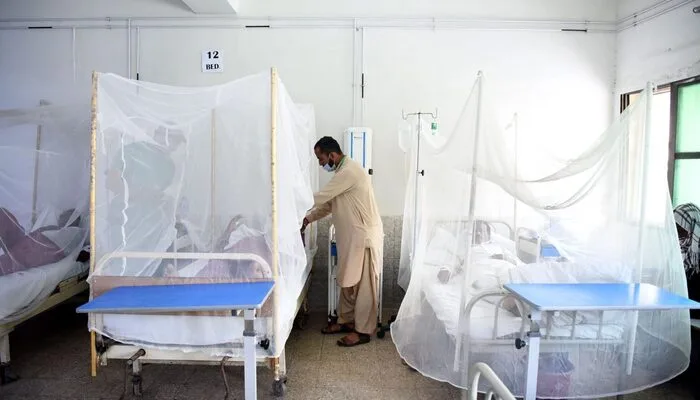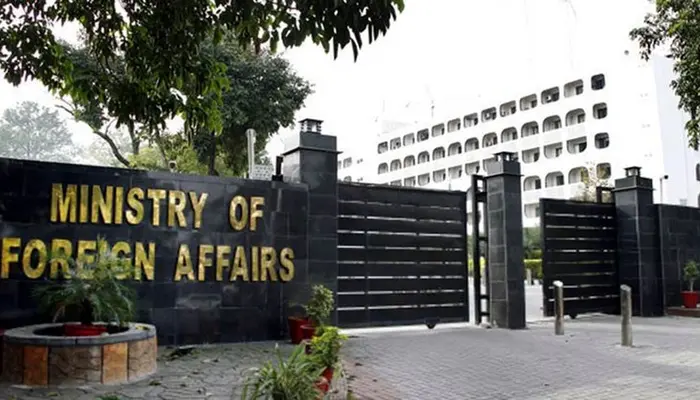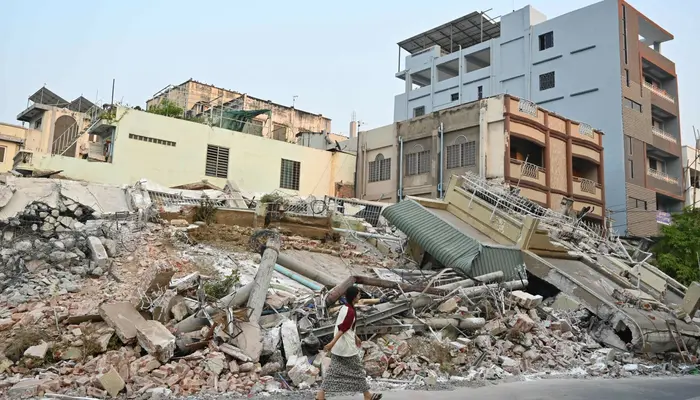
The Pakistan Meteorological Department (PMD) has predicted a decline in dengue fever cases by November, thanks to shifting meteorological conditions. However, officials warn that the next two weeks remain crucial for controlling the virus’s spread. As the weather continues to favor mosquito breeding, health authorities must take immediate action to prevent a worsening outbreak.
Immediate Action Needed to Prevent Spread
According to the PMD, while cases may decrease in the coming month, the immediate threat of dengue persists. The current atmospheric conditions, such as temperature and humidity, are highly conducive to mosquito breeding, particularly the Aedes mosquito, which spreads the dengue virus. These conditions are expected to prevail for at least two more weeks, making it essential for national health agencies to intensify their efforts.
Health officials have been urged to strengthen anti-dengue campaigns. The PMD emphasized that preventive measures during this period will be key in mitigating the outbreak’s impact. National and local agencies, especially in high-risk areas, need to act collectively to curb the spread. Enhanced public awareness campaigns about mosquito control and personal protective measures are also critical at this stage.
Health Experts Highlight Prevention Measures
Dengue control centers and health professionals have reiterated the importance of mosquito prevention strategies. The most effective way to control the outbreak is to eliminate mosquito breeding sites. Health experts stress that stagnant water, where mosquitoes lay eggs, is a major threat.
Additionally, people are encouraged to use mosquito repellents, install window screens, and wear protective clothing. Community participation in these prevention efforts will be essential in combating the outbreak during the remaining high-risk weeks.
Read: PTI Rejects Justice Yahya Afridi’s Nomination as New Chief Justice
Rawalpindi Faces Worsening Outbreak
While the PMD forecasts a future decline in cases, the dengue situation in Rawalpindi has reached alarming levels. Over the past two months, the city has seen a sharp increase in cases, with the death toll now standing at seven. Hospitals are overwhelmed with patients, and health authorities are struggling to keep up with the rising demand for medical care.
In response, the Rawalpindi District Health Authority (DHA) has expanded its capacity to accommodate more dengue patients. Plans are in place to increase the number of available hospital beds from 600 to 1,000. This is seen as a necessary measure to handle the ongoing surge of cases across the division.
Efforts to Control Outbreak Under Scrutiny
Despite spending Rs363.2 million on anti-dengue campaigns, Rawalpindi’s efforts to control the outbreak have been called into question. The growing number of cases highlights potential gaps in the city’s response strategy. The DHA has already recruited additional staff and implemented several mosquito control programs, but the virus continues to spread rapidly.
One of the biggest challenges remains the unchecked breeding of dengue mosquitoes, particularly in densely populated areas. Public health officials are now focusing on increasing fogging operations, clearing waterlogged areas, and enhancing public outreach programs to educate citizens on dengue prevention.
Collective Action Needed to Curb Outbreak
Health authorities agree that the next two weeks will be critical in determining whether the outbreak can be controlled before November. PMD officials, along with local health agencies, have urged citizens to take personal responsibility by ensuring that their homes and neighborhoods remain free of stagnant water and potential mosquito breeding sites.
The PMD remains hopeful that as temperatures gradually decrease and weather patterns shift, the dengue threat will diminish. However, the effectiveness of prevention measures taken in the coming days will play a significant role in how quickly the situation is brought under control.
In conclusion, while the PMD’s forecast of a decline in dengue cases by November offers hope, immediate collective action is essential to prevent further spread. Citizens, health authorities, and government agencies must work together during this critical period to ensure that the outbreak is contained and the number of cases starts to decline.
Follow us on Google News, Instagram, YouTube, Facebook,Whats App, and TikTok for latest updates












